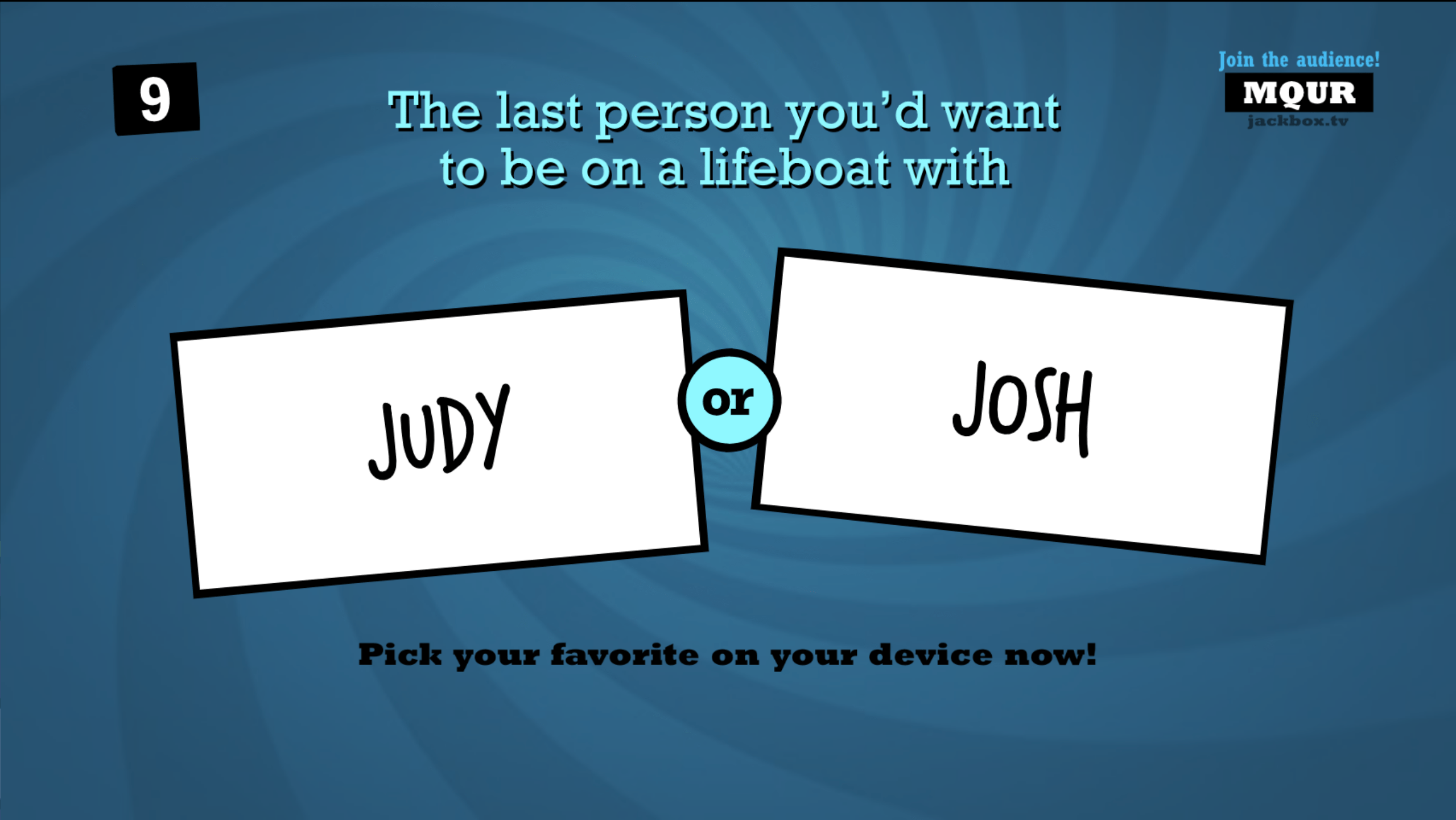This week, I played Quiplash 2 with some high school friends. Released in 2016 by Jackbox Games, Quiplash 2 is a judging game where players individually provide an open-ended response on a personal device, before voting on others’ responses displayed on a shared screen. It’s intended to be played in-person on TV, or online via video streaming; we did the latter. Because of the game’s unique form factor, it’s available on many platforms: PC, Nintendo Switch, Xbox, Playstation, iPad, and even directly through Apple TV or Amazon Fire TV—but still requires each player to have an auxiliary device to play. Quiplash 2 is rated T for Teen, but a family-friendly filter exists, making the game ideal for teens and adults but accessible to families alike.
In Quiplash 2, players take turns responding to prompts on their device. They then judge other players’ responses to their prompts. Because of this judging mechanic, players will either attempt to better understand their target audience (other players) for lesser-established groups, or alternatively utilize pre-existing knowledge for better-established groups, to earn points and satisfy the psychological need for achievement via recognition. While points act as a preliminary motivator, the game’s judging system removes bias through numerous means, allowing players to focus on judging responses for their true value. While players may wish to earn points, close groups can fulfil their sensual psychological needs by attempting to make others laugh even in losing; Quiplash 2’s open-ended response format and specific judging mechanics that inspire players to focus on pleasing their peers, rather than winning alone, creates a dynamic where players often design unique, group-specific strategies to win the game and greatly strengthen group friendship, regardless of initial bond.
Quiplash 2’s open-ended response format creates a dynamic where players can tactically decide what level of maturity or humor best matches their audience. I played with a group of close friends from high school that regularly play games together online, despite physical separation. As such, we have great familiarity with each other’s sense of humor, and were comfortable being more mature; this came into effect near the end of Round 1, when Lilly abused her knowledge that we all love a good dirty joke: when prompted to come up with an acronym for J.M.T, she responded “Judy Milking Tom.”
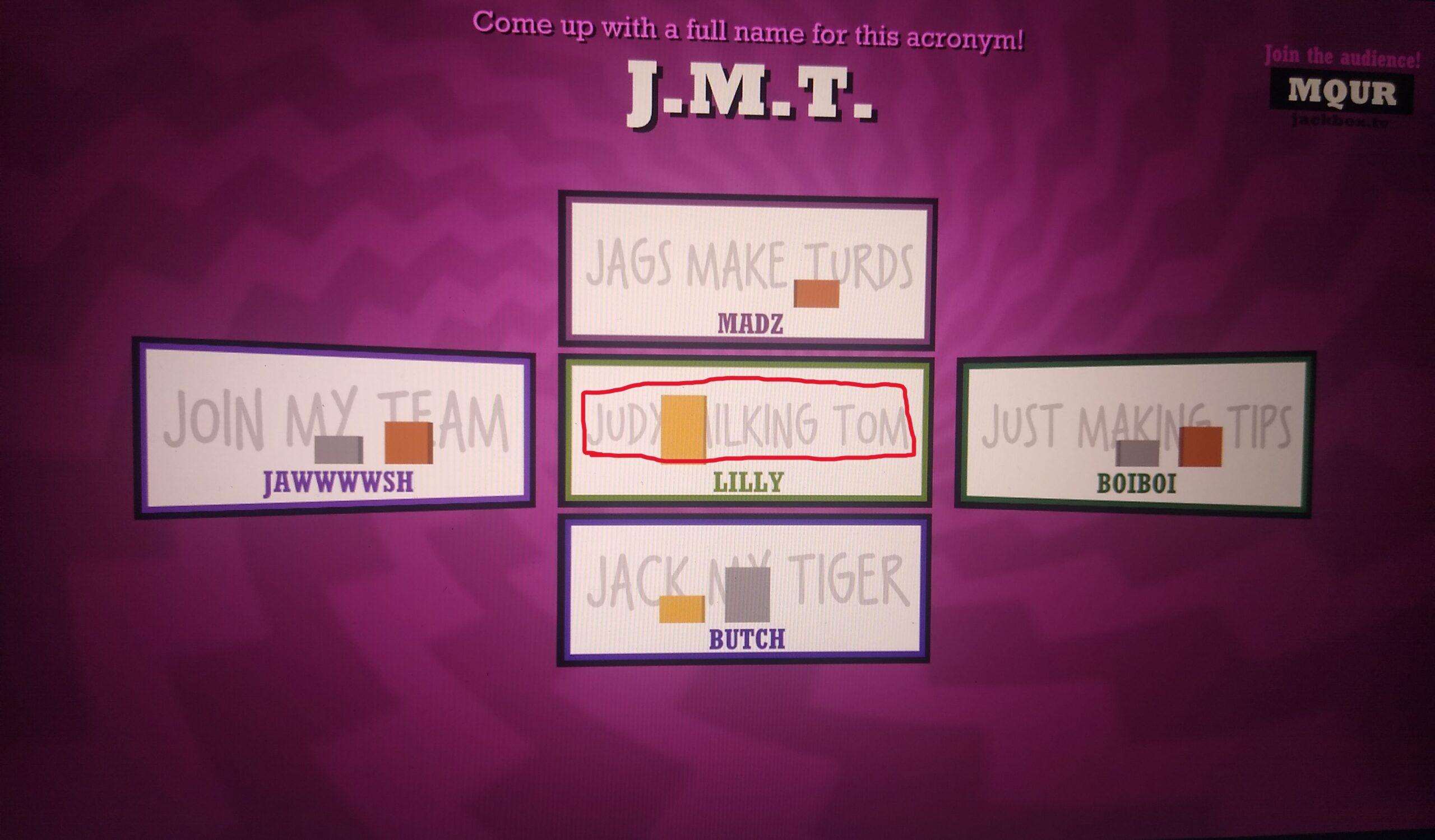
The game’s judging mechanics of anonymity allowed the other players to unbiasedly choose based on intrinsic humor, and this response elicited immense laughter, highlighting the fellowship the group felt by having similar humor standards.
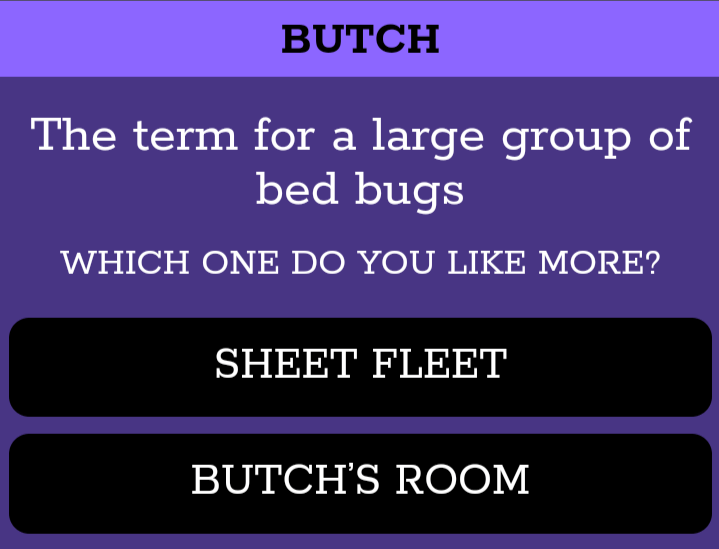
Groups can also tailor responses by using player names to create surprise humor dependent on any given game’s players. This was witnessed when “Butch’s Room” won “The term for a large group of bed bugs.” This response was amazing due to my close relationship with my friends, who knew that I would find this funny, not offensive.
Another group-specific dynamic involves introducing inside jokes: our group has numerous inside jokes to act as unique game additions. This included—but wasn’t limited to—recycling answers from earlier in the night, or even prior game sessions. In the very first prompt judged after “Judy Milking Tom”, it appeared again, creating a hilarious scenario where we had only just recovered, to quickly be in uproar again. It then became a consistent appearance for the rest of our session.
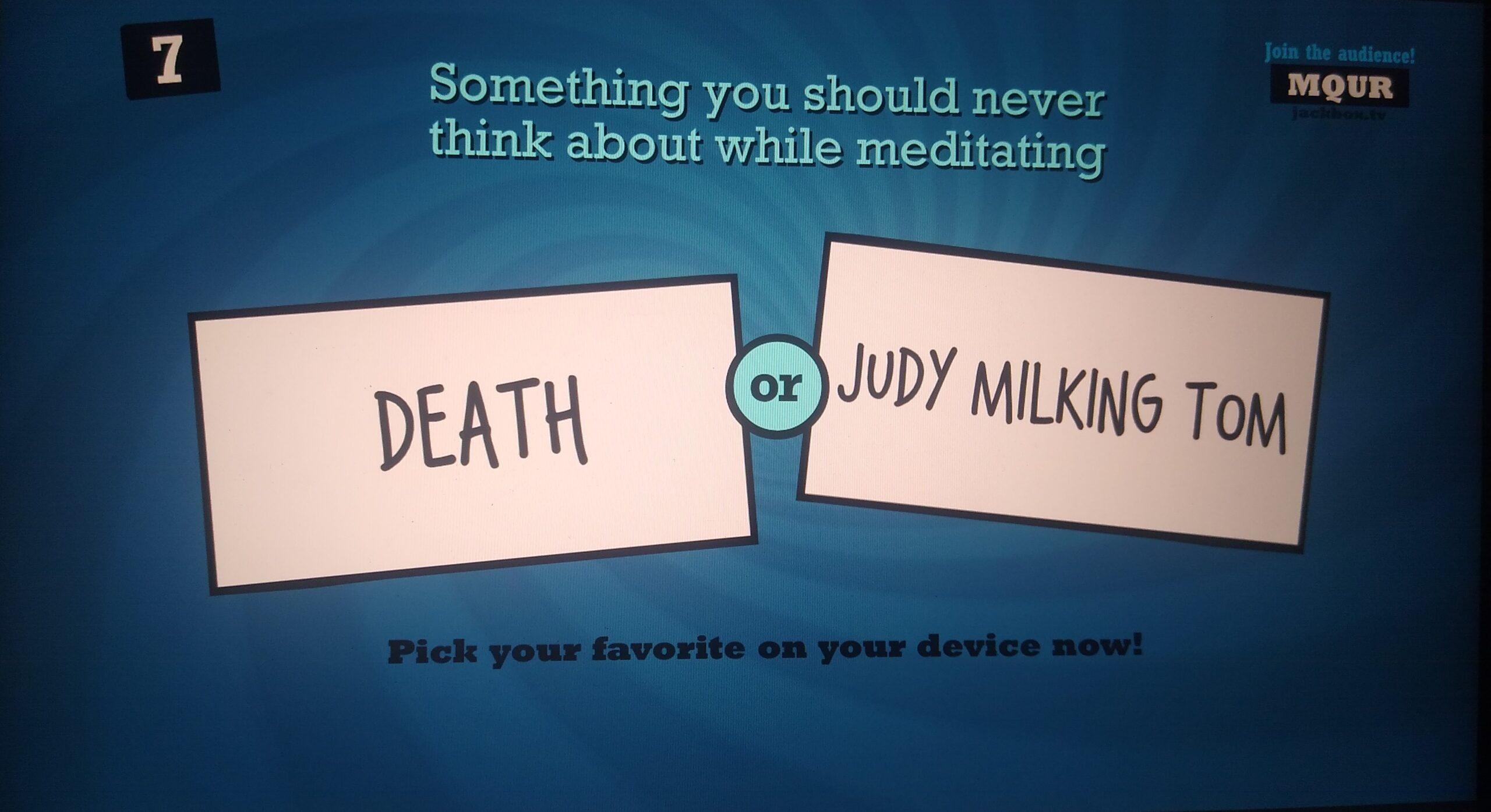
After appearing multiple times, it created a dynamic where players consistently evolved the types of responses we were using, such as taking subsections of prior responses, or using long-standing inside jokes (“Tiger Daddy” referred to a Gartic Phone session over a year ago). This showcases fun through expression, as players crafted ways to try to compete with “Judy Milking Tom.”
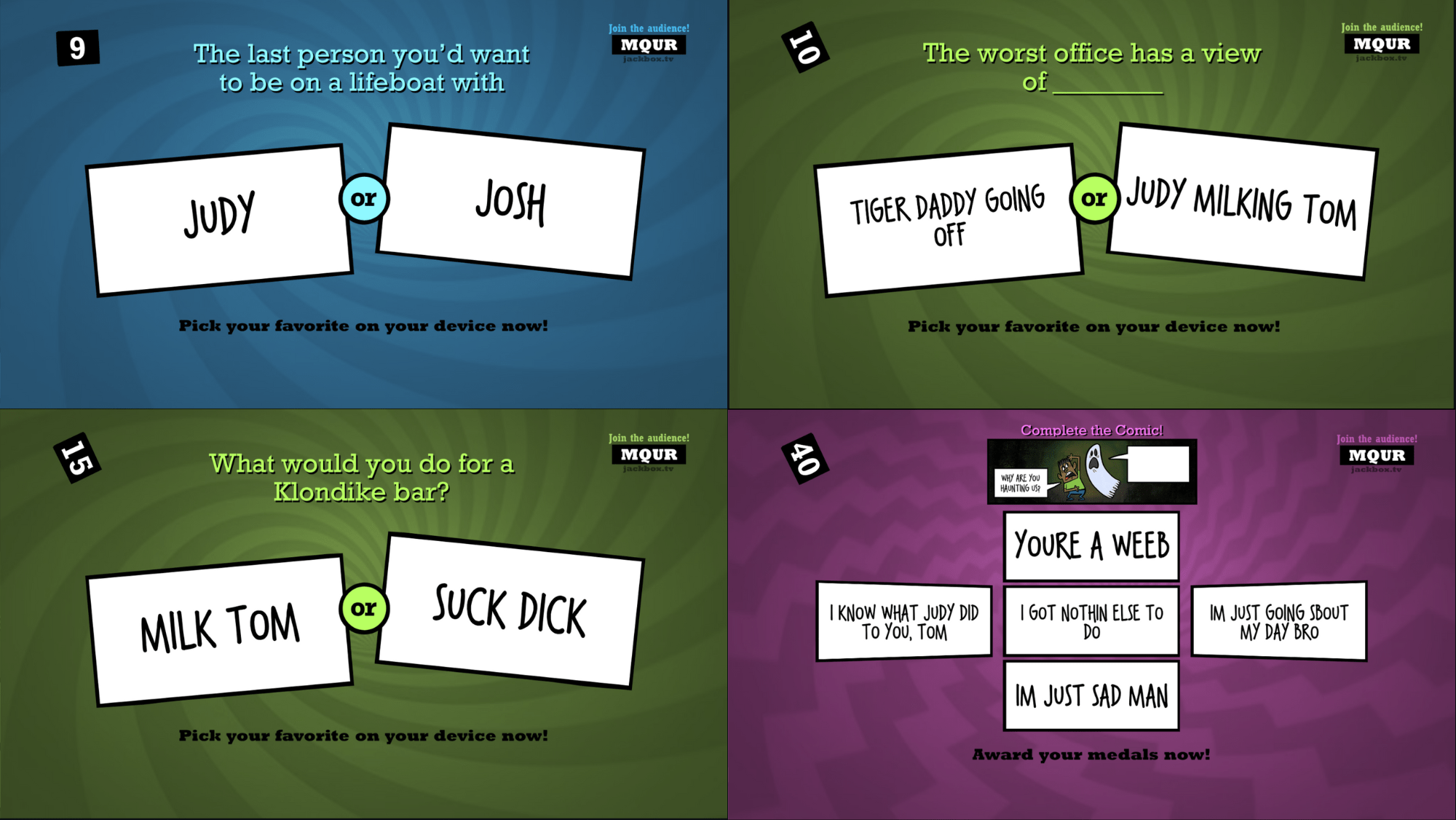
Overall, Quiplash 2’s judging system establishes an environment that encourages players to be creative in their attempts to win votes. By not voting on prompts one has answered (barring the final round), players can provide unbiased judgments on each response, elevating judges’ values and providing inspiration to appeal to the groups’ overall judging habits and personalities. As a result, newer friend groups can learn about others’ senses of humor, express themselves, or develop their first inside jokes. Meanwhile, more intimate friend groups can create curated responses, introduce or reintroduce inside jokes, and further reinforce bonds within strong friendships.
(And I have a feeling that this won’t be the last time I hear about “Judy Milking Tom.”)


